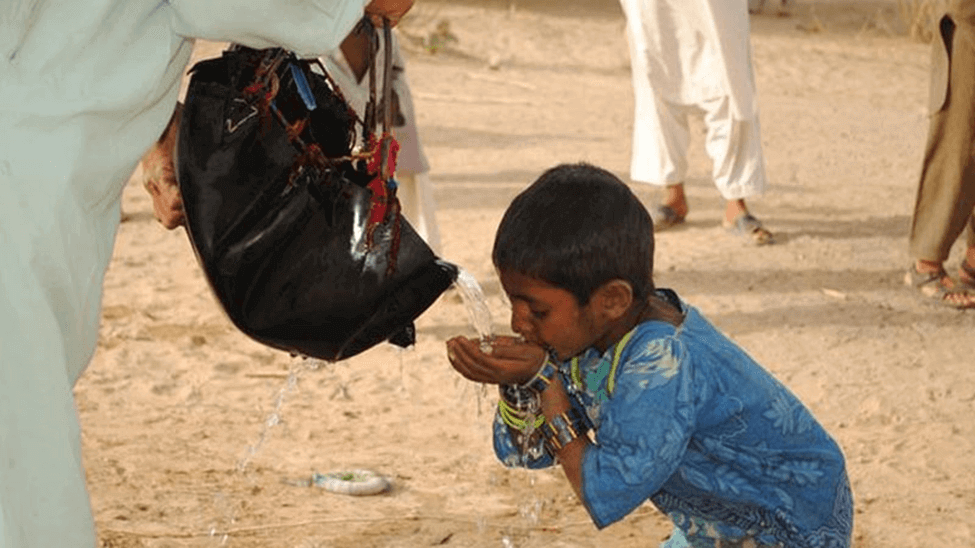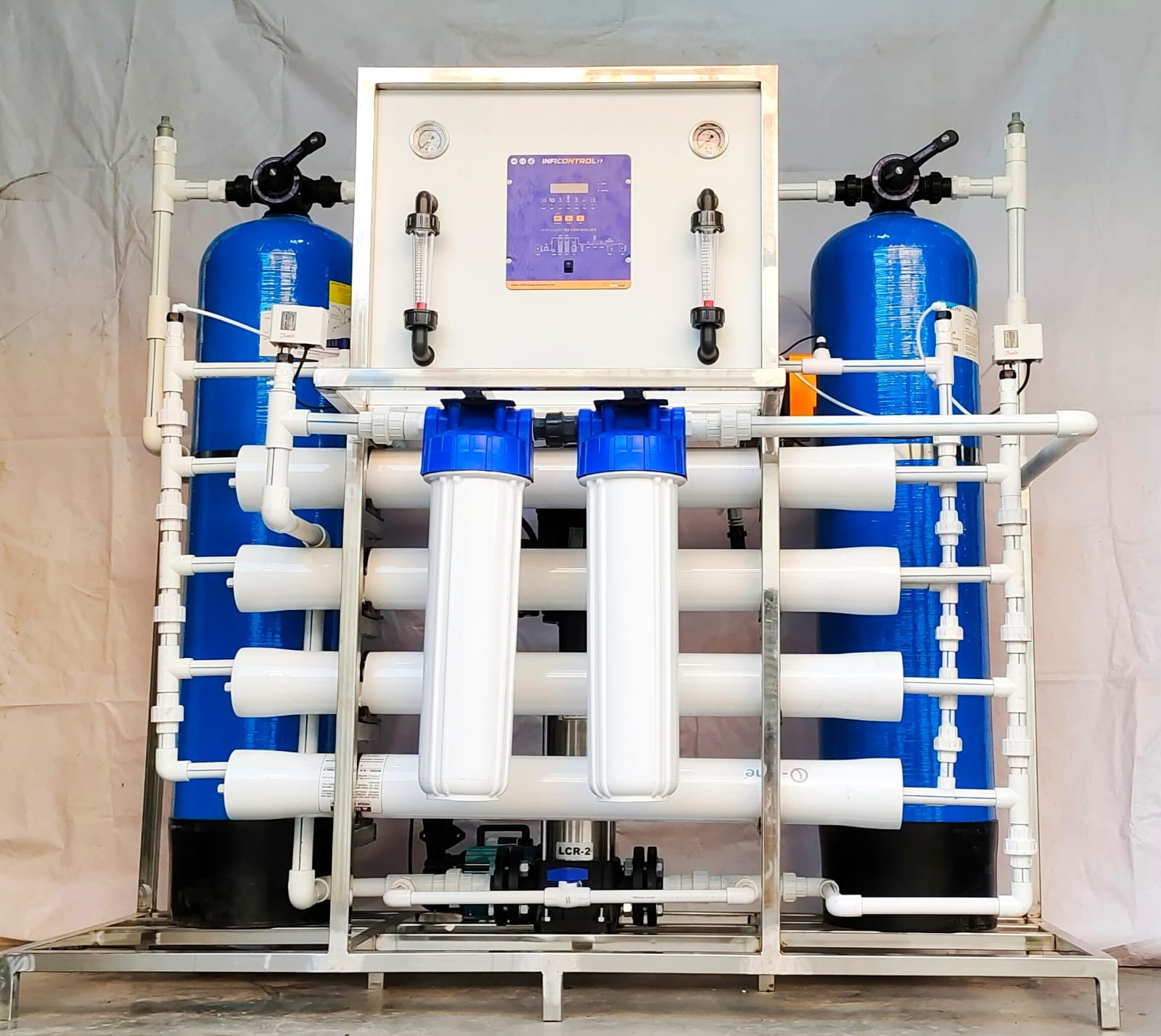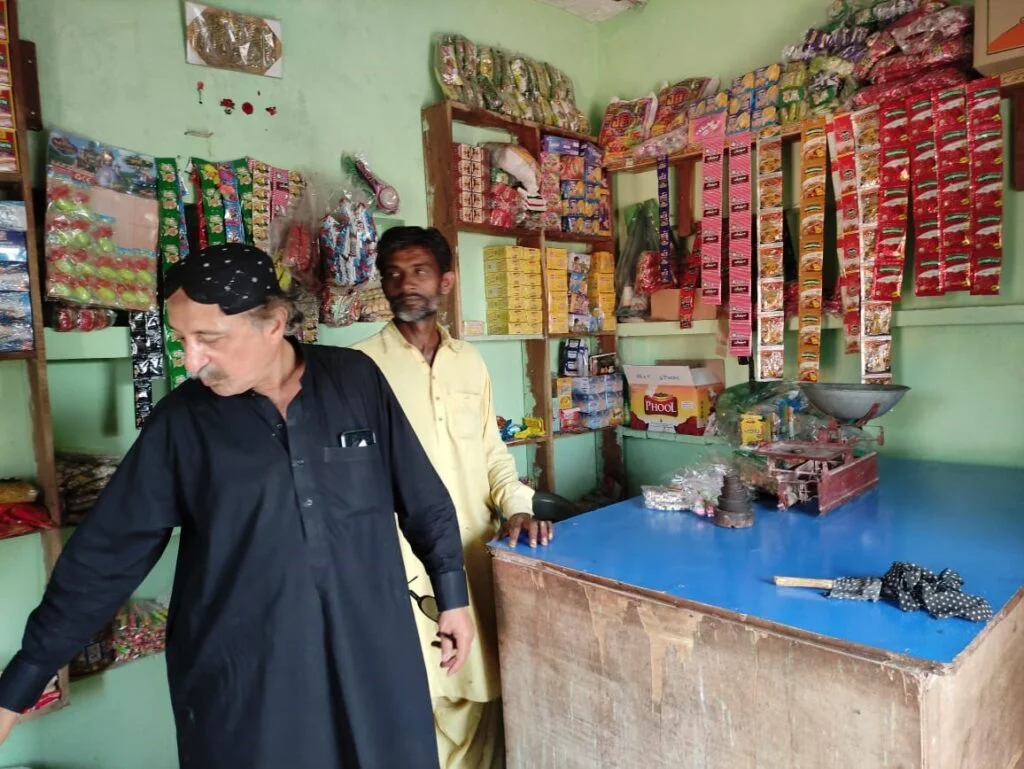Diverse Initiatives
Fresh Drinking Water
Thar experiences its first rainfall in May, followed by two more significant rain spells in June and July, which are crucial for both crop growth and human consumption. These rains provide a brief but vital reprieve for the region's agriculture and water supply. However, as the rainy months end and the anticipated monsoon rains fail to arrive, villagers begin to worry that the drought will intensify with each passing day, putting their already fragile livelihoods at greater risk. Without the monsoon rains, the groundwater system becomes the sole source of water for both human consumption and crop cultivation, leading to increased pressure on the available resources. Accessing this groundwater is not an easy task, as many of the wells are located far from the villages. Fetching just 10 to 12 liters of water can take a household or family between three to four hours, a journey made even more challenging by the harsh terrain and extreme heat. In many of the remote villages of Thar, there is no access to piped water, leaving communities entirely dependent on these distant wells. The daily struggle for water consumes a significant amount of time and energy, affecting the villagers' ability to focus on other essential tasks and deepening the hardships faced during times of drought.




Reverse Osmosis (RO) Plants
Only 7% of Thar’s population has access to a water supply from reverse osmosis plants, and in terms of the area, only 17% of Thar’s land is covered by water as per the required standards of the WHO.
RO plants are a relatively recent occurrence that first appeared in some parts of the Thar desert only a decade ago and are very expensive. This technology best suits the area under given circumstances and climatic changes. STP International has investigated this option and decided to power it with solar energy. An RO Plant with 6,000 gallons a day production capacity can easily cost between $7,000 to $8,000.
Although the groundwater in Thar is mostly brackish and unhealthy for human consumption, people still sometimes consume it when they do not have access to clean drinking water. The presence of fluoride in water samples obtained from different parts of Thar implies that it is hazardous to human health and can lead to disease or bone deformation. Research facilitated by a local NGO, AWARE (Association for Water Applied and Renewable Energy), found fluoride content of varying degrees in the water. It was as high as 32 mg/litre and as low as 4 mg/litre against the World Health Organisation’s permissible limit of 1.5mg/litre.
Our Solution
Under this program, STP International supplies clean drinking water to rehabilitated villages. We have provided clean drinking water to nearly 500 people and a large livestock population as part of our program.
Before embarking upon a new village project, STP International’s engineers locate a freshwater well in a designated area. Once the location is confirmed, the houses are built around it to ensure that the communal water storage tank is nearby. This will also have secondary benefits as lack of adequate water and long distances to retrieve it restricts young villagers’ social life and education opportunities, especially girls who are often responsible for fetching water daily.

Impact On Women And Children
STP International programmes help improve the social-economic conditions of the people of model villages in general, and women and children in particular. Due to water scarcity and the lack of water supplies in their villages, the women and children travel long distances daily to fetch water from faraway areas. Hundreds of women and children in the four villages now have access to clean water at their doorstep thanks to the water wells drilled as part of the program, translating into improved health and education for them now and in the future.

Business Startup Program
In partnership with IoBM’s SSK Incubation Center (https://incubation.iobm.edu.pk), STP International will provide seed grants to the youth of the villages. This aspect will develop the ability and skills of new business startups in remote areas. Our objective is to provide a conducive environment for entrepreneurship and make available the necessary resources to foster tech-enabled start-ups focused on Environmental, Social, and Governance (ESG) issues.
Business Startup Program
In partnership with IoBM’s SSK Incubation Center (https://incubation.iobm.edu.pk), STP International will provide seed grants to the youth of the villages. This aspect will develop the ability and skills of new business startups in remote areas. Our objective is to provide a conducive environment for entrepreneurship and make available the necessary resources to foster tech-enabled start-ups focused on Environmental, Social, and Governance (ESG) issues.

Hands-on Skills Training
Skills Education & Training
This program imparts skills education to the young people of the villages to improve their employment prospects, entrepreneurship, and understanding of social responsibility. The strategy involves training delivered to young people to become Skills Trainers themselves in partnership with the Institute of Business Management (IoBM) based in Karachi. The training encompasses professional, technical, and academic knowledge as well as behaviour and attitude training.


Self-Employment Based Skills Development
Skills and knowledge are the driving forces of a nation’s social and economic growth and development. In a rapidly growing economy like Pakistan, with a vast and ever-increasing population, the concern is a lack of highly trained quality entrepreneurs. STP International plans to conduct several entrepreneurship and skills development programs for the village youth population. The Skill Development Program will be conducted in partnership with IoBM, focusing on entrepreneurship skills development & employability in health, education, agriculture, supply chain & distribution, etc.
Self-Employment Based Skills Development
Skills and knowledge are the driving forces of a nation’s social and economic growth and development. In a rapidly growing economy like Pakistan, with a vast and ever-increasing population, the concern is a lack of highly trained quality entrepreneurs. STP International plans to conduct several entrepreneurship and skills development programs for the village youth population. The Skill Development Program will be conducted in partnership with IoBM, focusing on entrepreneurship skills development & employability in health, education, agriculture, supply chain & distribution, etc.

Collaborative Need-Based Intervention
Need-Based Interventions
STP International will engage in various needs-based assessments and interventions through a well-designed strategy and process, to determine and address the needs or “gaps” in the current situation, and the desired objectives in a community or locality in terms of education, health, environment, etc. The interventions rely on the active participation of a community, local bodies, and partners to positively impact education, health, water sanitation, women’s empowerment, environment, agriculture, technology adoption, livestock development, and other areas.


